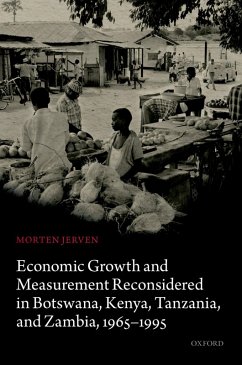How do we measure African economic performance? This volume studies how growth is measured in Botswana, Kenya, Tanzania and Zambia and challenges commonly held beliefs of African economic performance. The volume offers a reconsideration of economic growth in Africa in three respects. First, it shows that the focus has been on average economic growth and that there has been no failure of economic growth. In particular the gains made in the 1960s and 1970s have been neglected. Second, it emphasizes that for many countries the decline in economic growth in the 1980s was overstated, as was the improvement in economic growth in the 1990s. The coverage of economic activities in GDP measures is incomplete. In the 1980s many economic activities were increasingly missed in the official records thus the decline in the 1980s was overestimated (resulting from declining coverage) and the increase in the 1990s was overestimated (resulting from increasing coverage). The third important reconsideration is that there is no clear association between economic growth and orthodox economic policies. This is counter to the mainstream interpretation, and suggests that the importance of sound economic policies has been overstated, and that the importance of the external economic conditions have been understated in the prevailing explanation of African economic performance.
Dieser Download kann aus rechtlichen Gründen nur mit Rechnungsadresse in A, B, BG, CY, CZ, D, DK, EW, E, FIN, F, GR, HR, H, IRL, I, LT, L, LR, M, NL, PL, P, R, S, SLO, SK ausgeliefert werden.









